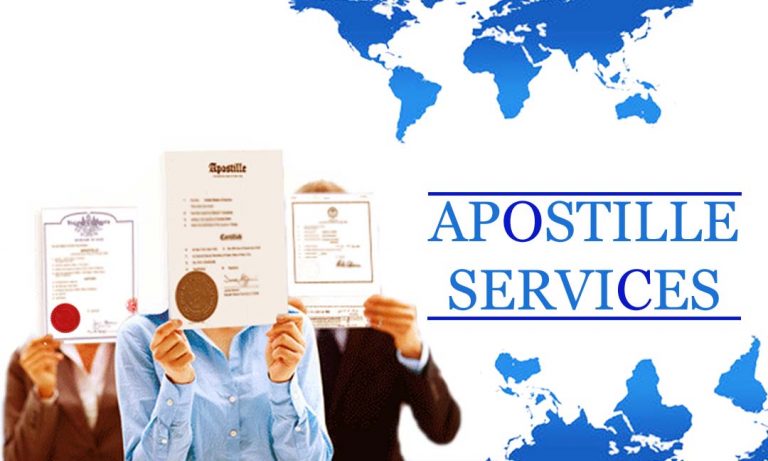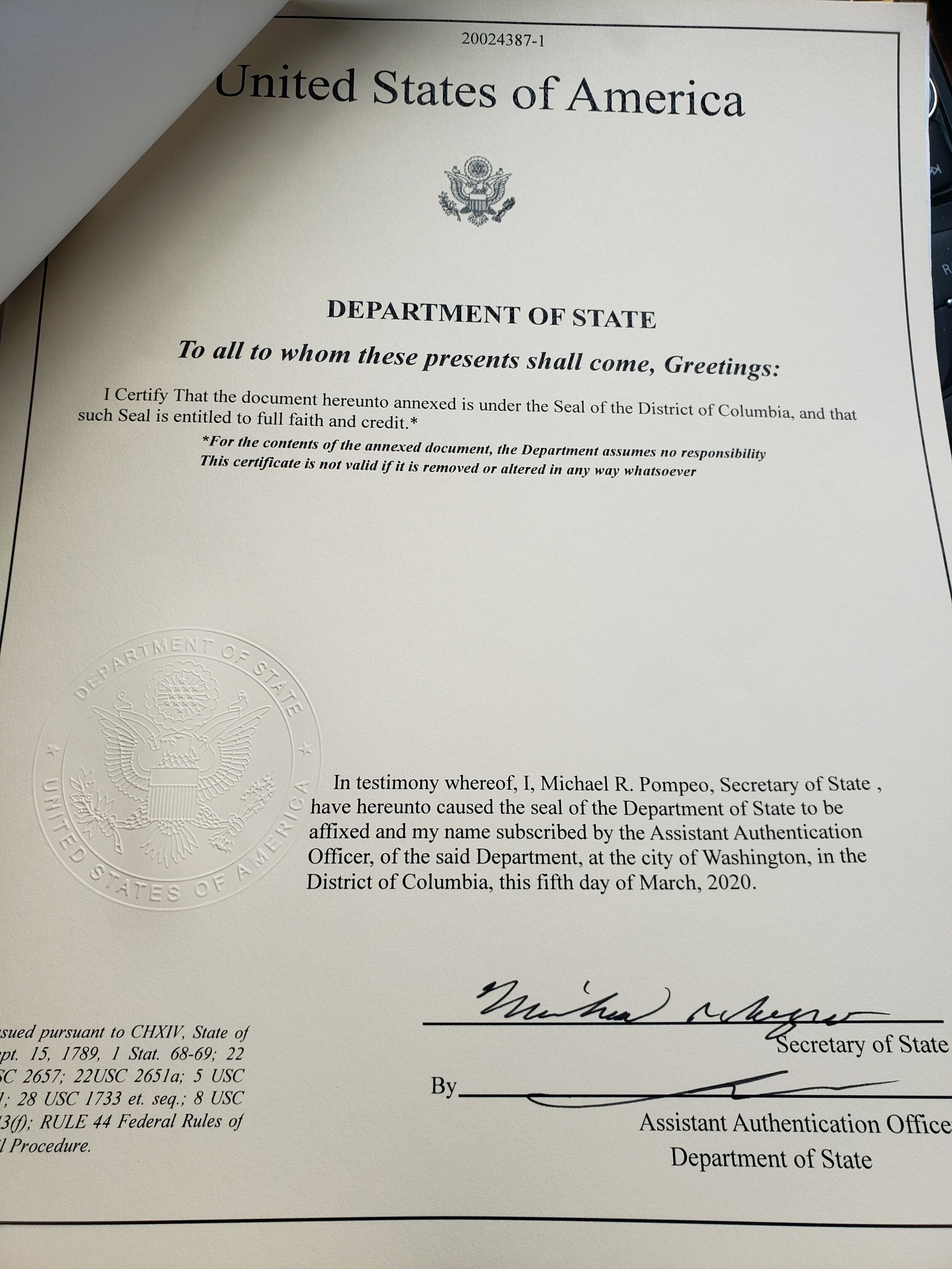Understanding the Value of Apostille Accreditation and Why It Is Crucial for Legal Records
In the realm of lawful documents, the process of validating and authenticating documents for international usage is an important aspect that can not be overlooked. Amongst the numerous mechanisms offered for this function, apostille accreditation sticks out as a structured and globally recognized method. Recognizing the details and effects of apostille certification on legal records is necessary for individuals and companies participating in cross-border tasks. This qualification lugs extensive significance in making certain the legitimacy and acceptance of vital documents past national borders, but exactly what does it entail, and why has it come to be crucial in today's globalized world?
The Definition of Apostille Accreditation
Apostille qualification is a specific form of authentication that validates the authenticity of a legal record for worldwide use. This qualification is vital for making certain that records coming from one country are identified as valid in an additional, streamlining the process of cross-border purchases, legal process, or personal matters like marital relationship or adoption. The Hague Apostille Convention of 1961 developed the framework for this simplified qualification process amongst taking part nations.
To acquire an apostille qualification, the assigned authority in the document's native land need to verify the paper's authenticity before affixing the apostille. This accreditation verifies that the signature, seal, or stamp on the paper is genuine. Houston TX Apostille. It does not verify the materials of the document but instead the authority of the individual or organization releasing it. Once attached, the apostille ensures that the paper will certainly be accepted as valid in any kind of various other country that becomes part of the Apostille Convention, without the demand for further accreditation.
Benefits of Apostille for Legal Papers
The usage of apostille qualification improves the global acknowledgment procedure for lawful records, offering considerable benefits in promoting legal rules and cross-border interactions. One essential benefit of apostille accreditation is that it makes sure the authenticity of the file concerned. By attaching an apostille certificate, the document becomes easily accepted in countries that are part of the Hague Apostille Convention, eliminating the demand for additional verification. This not only saves time but also reduces the bureaucratic difficulties that often come with global paper verification procedures.
Moreover, apostille qualification boosts the general efficiency of lawful treatments by simplifying the procedure of verifying the authenticity of a document. This is specifically helpful in situations where time is essential, such as in legal issues calling for quick cross-border activities. Furthermore, apostille qualification assists in cultivating trust and self-confidence among celebrations associated with worldwide purchases, as it works as a worldwide identified seal of approval for the file's legitimacy. On the whole, the benefits of apostille qualification for legal papers contribute in promoting smoother global engagements and making sure conformity with legal demands across borders.
Apostille Vs. Legalization: Key Differences
When comparing the procedures of apostille qualification and legalisation for legal files, it is important to understand the key distinctions in their respective verification methods. An apostille is a simplified form of legalization that is approved amongst countries that become part of the Hague Apostille Convention. The apostille procedure verifies the credibility of the document and the trademark of the issuing authority. It does not need additional embassy or consular office legalization, making it a more cost-effective and simple approach for verifying records globally.
On the various other hand, legalization is a more conventional technique that entails numerous steps of authentication. It requires verification by various authorities, including federal government departments and foreign embassies or consulates in both the releasing and receiving nations. This process can be more lengthy and costly contrasted to obtaining an apostille. The choice in between apostille certification and legalization depends upon the certain demands of the nation where the document will be made use of. Understanding these differences is essential for making sure the appropriate verification of lawful records for global usage.
Countries Approving Apostille Qualification

While the Hague Apostille Convention has actually substantially streamlined the process of cross-border record authentication, there are still nations that are not celebration to the convention - Houston TX Apostille. As a result, records destined for these nations may need standard legalisation procedures with embassies or consulates. It is vital for organizations and individuals dealing with global transactions to confirm the details requirements of the location nation to make sure conformity with their legal requirements
Actions to Get Apostille for Files
To obtain an apostille for your records, you must start by recognizing the appropriate issuing authority in your nation. As soon as you have actually identified the right authority, the next step is to make sure that your document fulfills all the needs for apostille qualification.
After validating that your document meets the criteria, you will certainly require to complete an apostille application offered by the providing authority. This type will require information regarding the file being authenticated and the nation where it will certainly be used. In addition to the completed application type, you will likely require to send the initial record, a duplicate of your recognition, and any kind of appropriate fees.

Final Thought
Finally, apostille certification plays a vital function in guaranteeing the credibility and credibility of lawful papers for international usage (Houston TX Apostille). Understanding the value of apostille accreditation is important for people and organizations browsing the complexities of cross-border purchases and legal issues. By acquiring apostille qualification, celebrations can simplify the process of file confirmation and authentication, inevitably saving time and resources in the global arena
To get an apostille accreditation, the marked authority in the document's country of beginning must validate the document's credibility prior to connecting the apostille. As soon published here as connected, the apostille makes certain that the paper will certainly be accepted as valid in any kind of various other country that is component of the Apostille Convention, without the demand for further accreditation.
By affixing an apostille certificate, the paper comes to be easily approved in nations that are component of the Hague Apostille Convention, eliminating the requirement for more authentication.Distinguishing between apostille accreditation and legalisation discloses the varying acceptance of these authentication techniques across various nations, with some countries specifically recognizing and adhering to the apostille process. The apostille qualification is extensively approved amongst countries that are part of the Hague Apostille Convention, which currently has 118 participant states.